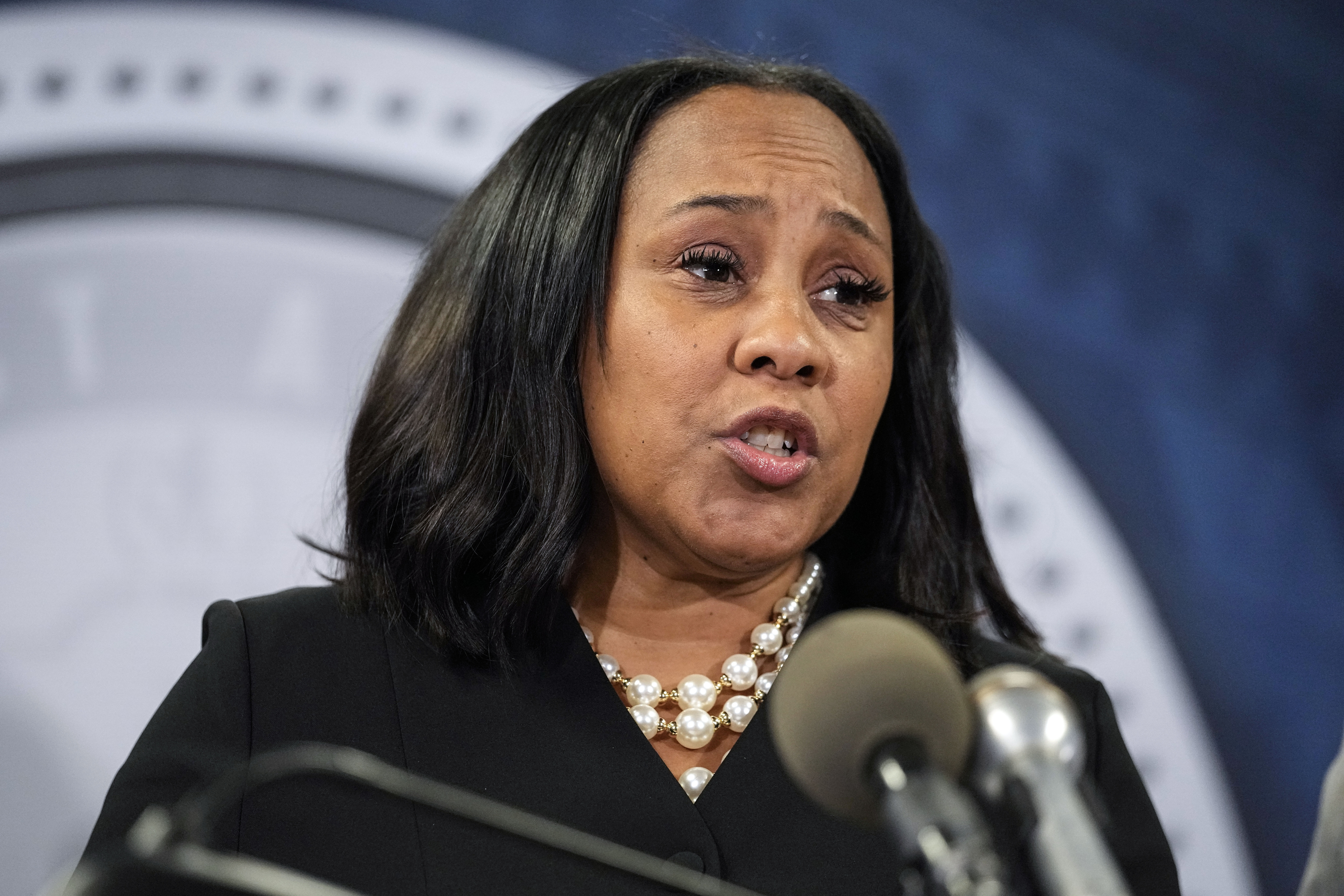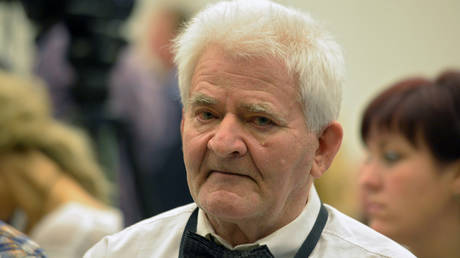Fani Willis appears to call out her critics in Trump case in speech at Black church
She referred to "idiots" and "silly school boys."


MARIETTA, Georgia — Fani Willis called out her critics in a defiant speech Thursday at a Black church outside Atlanta, not naming names but appearing to refer to Donald Trump and others who have attacked the Georgia prosecutor’s investigation of the former president’s efforts to overturn his 2020 election loss in the state.
Willis, the Fulton County district attorney, obtained an indictment last year against Trump and 18 of his allies. She has faced months of criticism over her handling of the case — with some of the attacks playing on racist or sexist tropes — as well as for hiring a special prosecutor, now off the case, with whom she had a romantic relationship.
Speaking to a gathering of Black church clergy and congregants, Willis said friends often express concern for her.
“I live the experience of a Black woman who is attacked and oversexualized,” she said. “See, I’m so tired of hearing these idiots call my name as ‘fanny’ in a way to attempt to humiliate me because, like silly school boys, the name reminds them of a woman’s rear, of her behind.”
Trump has used that pronunciation to mock Willis — whose first name is pronounced FAH'-nee — notably during a rally in Ohio in March when he said “fanny, like your ass,” when talking about her name. His campaign did not immediately respond to a request for comment Thursday. Willis said her father, “a strong, educated, conscious Black man,” gave her the name Fani Taifa, which she said means “prosperous people” in Swahili.
Willis’ outspokenness in response to critics is not new. But her out-of-court statements have been seized on by defense attorneys for Trump and drawn admonishment from the judge in the case, which is mostly on hold as a Georgia appeals court reviews whether she should be allowed to stay on it.
At the annual planning meeting of the Georgia AME church, Willis told the crowd gathered in the sanctuary of a church in suburban Marietta that friends often express concern about the attacks on her but that she shakes off the ugliness.
“What I’m here to tell you is to not concern yourself with insults of me. I promise you, I don’t concern myself with them,” she told the supportive audience, drawing shouted affirmations throughout her 25-minute remarks. “I am too busy working 15-hour days trying to use every talent God gave me to fulfill my God-given purpose.”
Willis also said she works hard “to hold all — all, there are no exceptions — who dare to come into our community and break the law accountable.” That mirrors her standard response when she’s asked about prosecuting a former president — that no one is above the law.
The August indictment accuses Trump and the others of participating in a sprawling scheme to illegally try to overturn the 2020 presidential election in Georgia, which Trump narrowly lost to Democrat Joe Biden. Four defendants have pleaded guilty after reaching deals with prosecutors, but Trump and the others have pleaded not guilty.
Republican lawmakers in Atlanta and Washington have targeted her since the indictment, opening investigations into her office. She has had a particularly barbed exchange with Rep. Jim Jordan of Ohio, the Republican chair of the House Judiciary Committee, who has questioned her motivations and demanded that she produce records.
She appeared to take another swipe at Jordan Thursday, saying, “We have politicians that spend no time doing their elected purpose. In fact, we got a clown in Washington D.C. who’s been elected for the purpose to make his community safer and pass laws. But he’s been sitting there for 17 years and passed zero laws.”
Jordan entered Congress in 2007, 17 years ago. His office did not immediately respond to a request for comment.
Defense attorneys for Trump and others have pointed to a speech Willis gave at a historic Black church in Atlanta in January, saying she inappropriately inserted race and God into the case, potentially prejudicing potential jurors against their clients. Those arguments have come in an ongoing effort to get Willis and her office removed from the election interference prosecution or to have the case dismissed entirely.
The Willis removal effort began with the revelation that she had had a romantic relationship with attorney Nathan Wade, whom she had hired as a special prosecutor for the case. Defense attorneys argued that Willis improperly profited from the case when Wade used his earnings to take her on vacation, resulting in a conflict of interest.
Fulton County Superior Court Judge Scott McAfee in March ruled that there was not a conflict that should force Willis off the case, but he said there was an “appearance of impropriety.” He allowed Willis to remain on the case as long as Wade did not, and the special prosecutor resigned hours later.
The Georgia Court of Appeals last month agreed to take up the case and lawyers for Trump earlier this week asked the court to hear oral arguments. Willis’ team on Wednesday filed a motion to dismiss the appeal, arguing there is insufficient evidence to support reversing the lower court’s order.
The case against Trump and the other eight defendants involved in the appeal has been halted by the appeals court while it reviews the lower court ruling. That means the case against Trump, one of four criminal cases against the former president, almost definitely will not proceed to trial before the November general election, when Trump is expected to be the Republican nominee for president.












